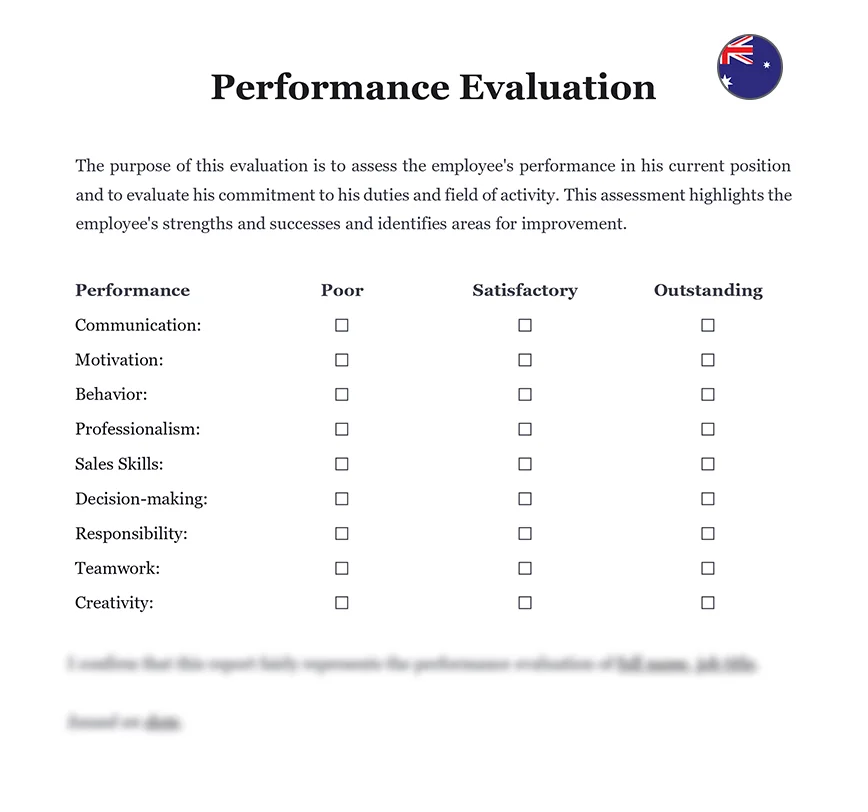Ready to use legal template
Work on without any hassle
Compliant with Australian law
Ready to use legal template
Work on without any hassle
Compliant with Australian law
Learn more about Employee Performance Evaluation in Australia
An employee performance evaluation, also known as a performance review or appraisal, is a process conducted by employers to assess the job performance and productivity of their employees. It typically involves a structured assessment of various aspects of an employee’s work, including their accomplishments, strengths, areas for improvement, and overall contributions to the organization. Our easy-to-edit templates streamline the document preparation process, ensuring that you have professionally crafted documents at your fingertips, ready to be customized to your unique needs.
Table of contents
-
What is the purpose of conducting employee performance evaluations in Australia?
-
What criteria are typically used to evaluate employee performance in Australia??
-
How often are employee performance evaluations conducted in Australia?
-
What methods or tools are commonly used for conducting performance evaluations?
-
How do employers ensure fairness and objectivity in the performance evaluation process in Australia?
-
What are the potential benefits of employee performance evaluations?
-
How can employers effectively communicate performance evaluation results?
What is the purpose of conducting employee performance evaluations in Australia?
The purpose of conducting employee performance evaluations in Australia is to assess and review individual employee performance against predetermined goals, objectives, and expectations. Performance evaluations serve several key purposes, including:
1. Providing feedback to employees on their strengths, areas for improvement, and overall performance.
2. Identifying training and development needs to enhance employee skills and capabilities.
3. Recognizing and rewarding high performers and contributors to the organization’s success.
4. Facilitating communication between managers and employees regarding performance expectations and organizational priorities.
5. Supporting decision-making processes related to promotions, salary adjustments, and succession planning.
What criteria are typically used to evaluate employee performance in Australia?
Criteria commonly used to evaluate employee performance in Australia may include:
| ➤ Job-specific competencies and skills required for the role |
| ➤ Achievement of key performance indicators (KPIs) and performance targets |
| ➤ Quality of work, including accuracy, completeness, and timeliness |
| ➤ Communication and teamwork abilities |
| ➤ Problem-solving and decision-making skills |
| ➤ Initiative, innovation, and creativity |
| ➤ Adherence to organizational values, policies, and procedures |
| ➤ Leadership capabilities (for managerial roles) |




